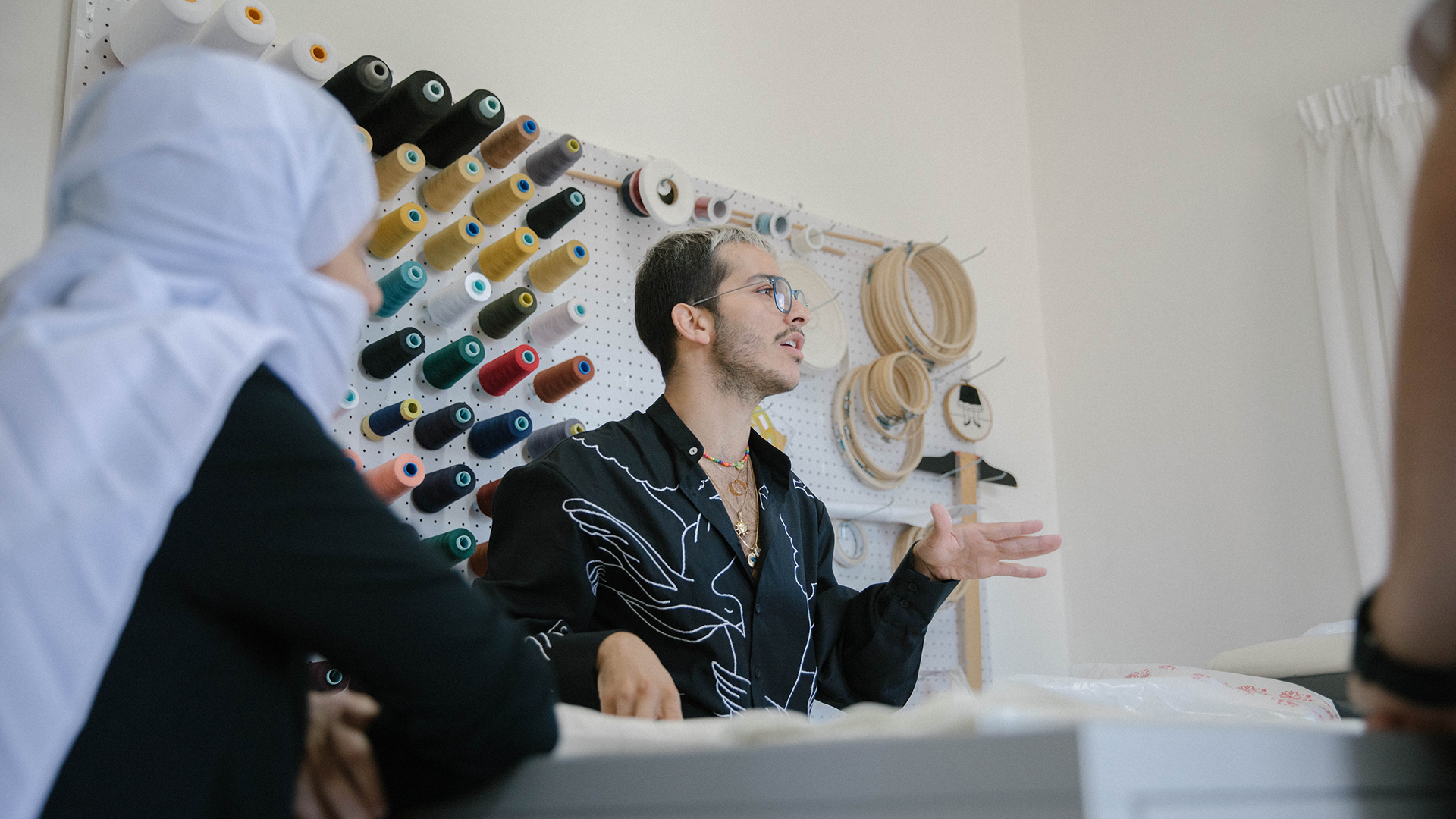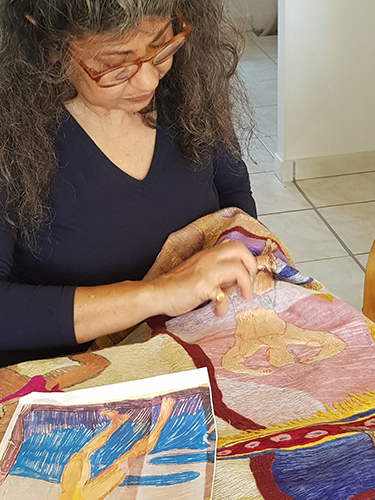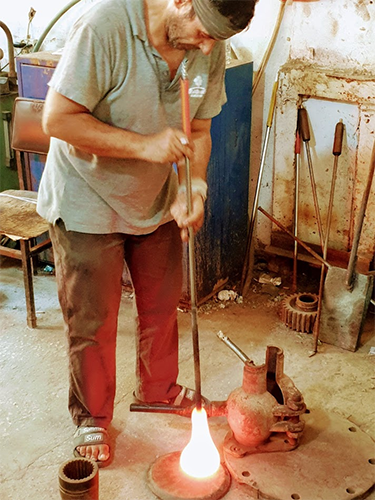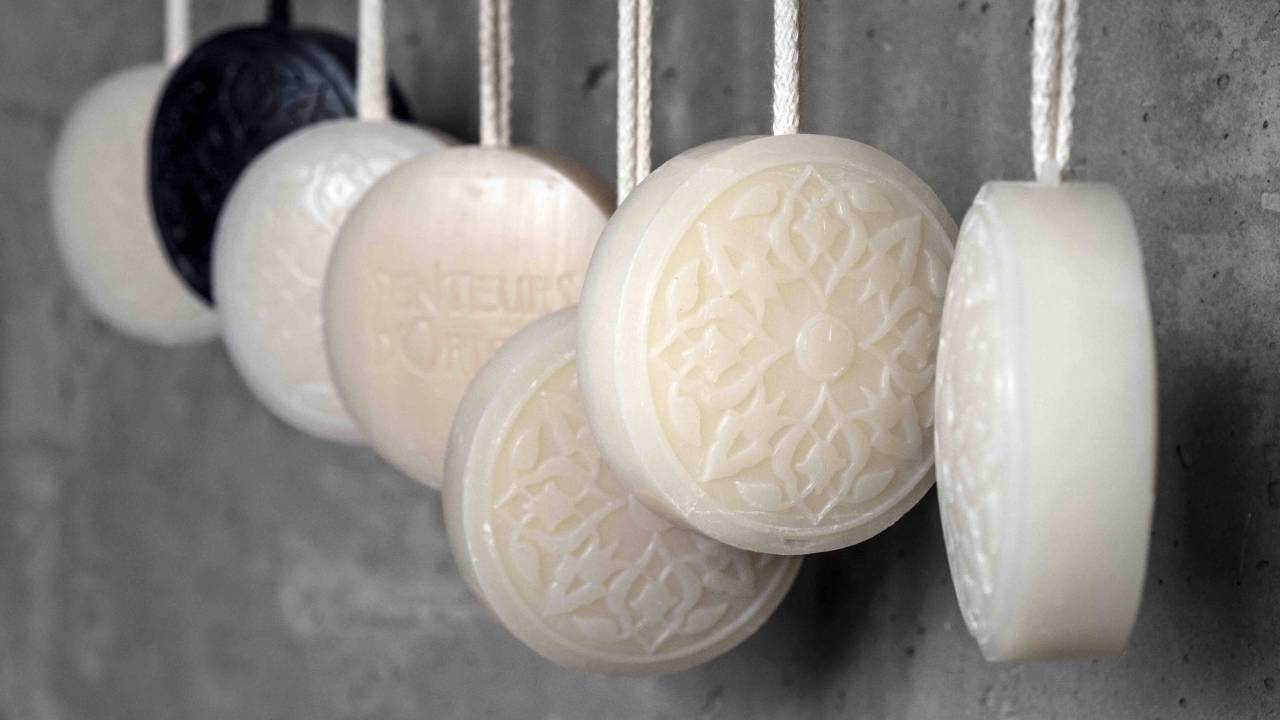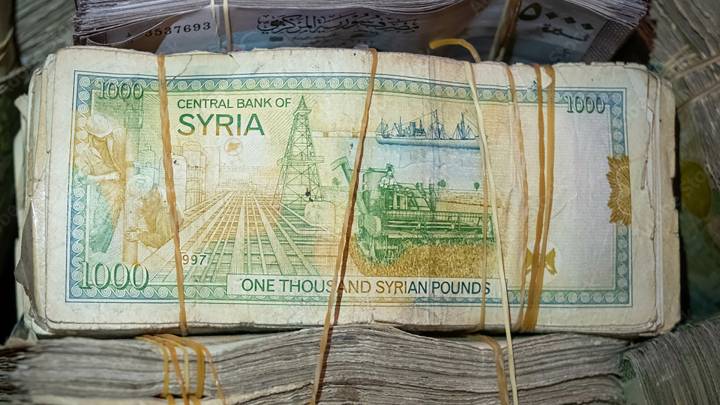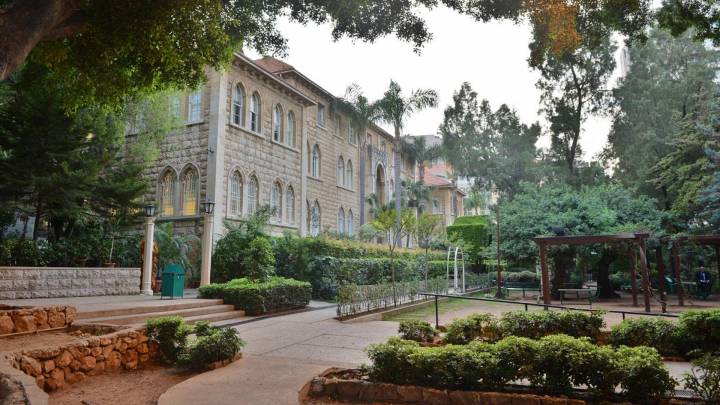How Lebanese handicraft is getting back on the scene in times of crisis
Zena Sabbagh’s small atelier in Beirut had been a special place: Women from shattered places all across the Middle East – Lebanese, Syrians, Palestinians or Iraqi – reunited here to work together. They were weaving, embroidering table wear, bed wear, tapestries or clothes. By doing this, they learned the ancient craft of block printing which the artist has passed on to them as she did to hundreds of women who trained with her.
Zena Sabbagh has always been passionate about transmitting her art. Originally from Syria, she fled Aleppo 2012 to settle in Beirut. Along she brought her craft, inspired by ancient traditions she once found in the souks of her hometown. Her atelier quickly became a hub for crafts. ‘Fil, Impression et Cie’, Zena’s label, has also participated in several projects supported by organizations such as Caritas or UNHCR, as well as in an initiative for women in the remote areas of Lebanon that received lots of refugees.
But that was before Lebanon was wrecked by the turmoil it is wrestling with now. The brutal crisis that has been hitting the country for almost two years now and impoverished large parts of its population also affected Zena’s business. The artist craftswoman left Lebanon though last year to settle in France. Yet, she longs to continue promoting Middle Eastern craft in Europe, where her creations have been selling on e-commerce platforms and on special events. Especially in times like these, Zena wants to continue to empower Lebanese handicraft.
As so many economic activities, crafts are hit by the crisis that is crippling Lebanon. But on the other hand, its hand-made products and old techniques, deeply rooted in the region, can help Lebanese not only to reconnect to their heritage, but also offers them new business opportunities. Prior to the crisis, the country was importing almost everything. But now, most of those items are not affordable anymore.
Even products that once were considered cheaper than the Lebanese ones since they were produced in places such as India and China, are now outrageously expensive given the devaluation of the Lebanese Pound and are out of reach for most of the population. Hence a return to local production, especially for items that don’t require significant technological and capital investment, as is the case with craft. Many Lebanese have started venturing in local production, following the October 19 revolution in 2019 and prior to it; some have taken it up in the wake of the 4th of August Beirut blast.
The opportunities arose by themselves, by la force des choses. A speaking example is the initiative undertaken by the famous environmental activist and Lebanese industrial engineer, Ziad Abi Chaker. In reaction to the blast, the engineer spearheaded an initiative that aimed at collecting the shattered glass and providing it for free, to the struggling glass blowers in Tripoli, which melted it down and transformed it in into glass wear: “125 tons of glass were recycled, a huge quantity in comparison with the 2 million bottles that were recycled pre-August blast, between 2013-2020,” says Abi Chaker.
By now, his initiative has expanded into designing a whole new line of products that help to sustain the local economy. Under the name ‘Helping hand’ Abi Chaker offers elegant brown glass bottles from Tripoli’s blowers to Lebanese farmers to pack and promote their pomegranate molasses, apple cider, vinegar or organic olive oil.
Projects like these mays seem new, but effectively they are in line with an ancient tradition in Lebanon, which, due to years of excessive consumerism and import, may have been a little forgotten. Tripoli, the long impoverished coastal city in the North for example, carries an old tradition of soap- making that goes back to the 15th century. Traditional companies like ‘Khan el Saboun’ are still in the business.
Those traditions can successfully be revitalized and carried into the 21th century. ‘Senteurs d’Orient’ for example, a brand founded in 2000 by Hana Akkari, a Syrian Lebanese raised in Tokyo and joined later on, by her New York-based daughter Sarah, is now conquering the world. The fine Lebanese handcrafted brand that blends Lebanese and Japanese culture sells in exclusive locations in Japan, the US and the UK. The brand is famous for its natural and therapeutic products, as soaps and oils: “My inspiration was to create products infused by the spirit of the Orient and to reflect the multiple ‘beauty of the Easts’ cultures so close to my heart,” says Hana.
Lebanon enjoys a rich biodiversity, including olive orchards which makes it well-positioned to capture the market potential. But the financial and economic crisis make it hard for many of the new craftsmen to sell their products. Few are the Lebanese who, in a time of rising fuel prices and shortages of essential goods, offer themselves expensive soaps or hair conditioners. No wonder companies like ‘Senteurs d'Orient’ sell primarily abroad. And even Abi Chaker’s Tripoli-based glass blowers cannot live from what they sell at home: “They asked me to help them to sell more. They said they needed new markets, otherwise they were going to close”, the engineer recounts.
Luckily, the Lebanese diaspora seems to have a high appetite for such products – and after the blast has manifested its willingness to support the local scene. This is why most of Lebanese artisanship revival initiatives are targeting this market specifically: several events to promote Lebanese art and artisans are taking place in Europe and some platforms are being created to sell Lebanese handicraft.
But the resurgence of hand-made products is more than just about the money. Crafts and particularly handicrafts with their capacity to convey stories and memory have the power of creating connection. “The power of the human hand and imagination to tell stories that touch the heart” as per the words of the acclaimed designer Nada Debs, overrides the feeling of disconnectedness generated by fragmentation and violence. Hence, in addition to its economic value, craft bears a symbolic value, that of heritage and culture.
In the same mindset, young Lebanese illustrator and fashion designer, Salim Azzam, 24 years old, winner of the ‘Fashion Trust Arabia’ award in 2019, has made it his mission to revive the craft of embroidery and to empower the women behind it. His collections tell the stories of a community from the Chouf mountains where he was born. In the workshop in his native village of Bater, elderly and younger women work together and exchange stories and know-how.
In addition to reviving a craft, Azzam’s work is also reviving community spirit and intergenerational bonds. The Lebanese crisis has only made Azzam dream bigger. He has set his sights on an old house in the beautiful village of Baakline that he would like to turn into an atelier, a showroom, an alma mater place for his activities and vision.
Azzam, so far, doesn’t want to abandon neither his homeland nor the Chouf mountains for the capitals of world fashion, where he could be mingling with celebrities. His land is his source of inspiration, and its people are his motivation, he says.
Handicraft in particular, carries a more sacred value, as, in perpetrating the know-how and the gestures that have been passed down through the centuries. It works as an antidote to misery and to powerlessness. This is very much needed in times as those that Lebanon is going through. And who knows: in a presumably more self-aware post-pandemic world that tends to shift towards more ethical and fair consumption patterns, maybe the battered country has found the possibility of positioning itself on the global map again.
The content published on the Lebanon Chronicles channel is supported by the Konrad-Adenauer-Stiftung (KAS). The views expressed in these articles are those of the respective authors and do not necessarily reflect those of the KAS.

